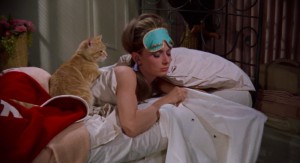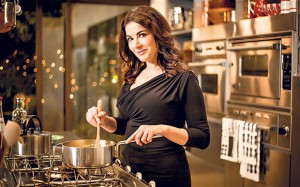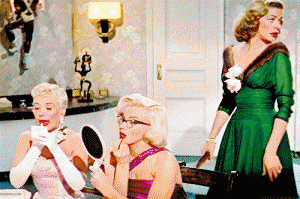Daily Routine in Portuguese Posted by carol on Apr 1, 2016 in Uncategorized
Olá! Como foi o dia de vocês? (Hello! How was your day?)
Our everyday lives consist of activities that we perform regularly and, as such, they are a part not only of our routine, but also of our language. Verbs and expressions connected with our routine are used on a constant basis and are considered a major topic for those learning a foreign language. So today’s post will give you some words related to daily actions. Now that’s what I call vocabulary that you can practice every day!
| Vida cotidiana – Daily life |
| Acordar – Wake up
Levantar-se – Get up Vestir-se – Get dressed Pegar o ônibus/ o metrô/ um táxi – Take the bus/ the subway/ a cab Ir para o trabalho/ a escola/ a academia/ casa – Go to work/ to school/ to the gym/ home Chegar/ Leave– Arrive/ Sair Voltar do trabalho/ da escola/ da academia – Get back from work/ from school/ from the gym Ir se deitar – Go to bed Dormir– Sleep |
Eu durmo às 22h (I sleep at 10pm)
| Refeições – Meals |
| Tomar café da manhã – Have breakfast
Almoçar – Have lunch Jantar – Have dinner Comer um lanche / um sanduíche – Eat a snack/ a sandwich Tomar um café/ um suco / um chá/ um refrigerante – Have coffee/ juice/ tea/ a soda Cozinhar – Cook Fazer o café da manhã/ almoço/ o jantar – Make breakfast/ lunch/ dinner |
| Atividades gerais – General activities |
| Ler o jornal / um livro – Read the newspaper / a book
Fazer um intervalo/ Descansar – Take a break/ Rest Ouvir rádio/ música – Listen to the radio/ music Assistir TV – Watch TV Ir ao cinema/ a um bar/ a um restaurante/ à boate/ à praia/ ao clube – Go to the movies/ to a bar/ to a restaurant/ to a nightclub/ to the beach/ to the club Malhar/ se exercitar – Work out/ Exercise Estudar – Study Conversar/ Sair com os amigos – Talk to/ Go out with friends Fazer compras – Go shopping Passear com o cachorro – Walk the dog Olhar e-mails – Check your e-mail |
| Higiene/ Cuidados pessoais – Personal hygiene/care |
| Tomar banho – Take a shower
Pentear/Lavar o cabelo – Comb/ Wash your hair Se barbear – Shave Se arrumar – Get ready Passar maquiagem/perfume – Put on makeup/ perfume Cortar as unhas – Clip your nails Escovar os dentes – Brush your teeth |
- To add more information, you can always use some adverbs of time to say when or how often something happens:
|
cedo – early tarde – later às 7h – at 7h de manhã – in the morning à tarde – in the afternoon à noite – in the evening/at night hoje – today antes – before depois – after |
às vezes – sometimes
sempre – always nunca – never raramente – rarely normalmente – normally geralmente – usually diariamente – daily em seguida – afterwards |
- Days of the week:
| Segunda | Terça | Quarta | Quinta | Sexta | Sábado | Domingo |
| Monday | Tuesday | Wednesday | Thursday | Friday | Saturday | Sunday |
Now take a look at the texts below and pay close attention to the terms related to our everyday routine:
Márcio sempre acorda tarde, então ele raramente toma café-da-manhã. Às vezes ele come em um restaurante antes de ir para a aula. Ao meio dia, Márcio vai para escola e come um lanche com os amigos às 15h. Ele gosta de cozinhar, então quando ele chega em casa, Márcio faz jantar enquanto ouve música. Antes de se deitar, Márcio passeia com seu cão e toma um banho. Às 23h ele assiste seriados na TV e em seguida vai dormir.
Márcio always wakes up late, so he rarely has breakfast. Sometimes he eats at a restaurant before going to class. At noon, Márcio goes to school and has a snack with his friends at 3pm. Ele likes to cook, so when he gets home, Márcio makes dinner while he listens to music. Before going to bed, Márcio walks his dog and takes a shower. At 11pm he watches series on TV and goes to bed afterwards.
O dia de Paula começa cedo. Ela acorda às 6h, come uma salada de frutas e vai para a academia. Depois, Paula volta para a casa e toma um banho. Às 8h pega um ônibus para ir para o trabalho e toma um café com seus colegas. Paula geralmente volta para casa para o almoço porque prefere comida caseira. À noite ela sempre sai com os amigos para um bar ou a uma boate.
Paula’s day begins early. She wakes up at 6am, eats a fruit salad and goes to the gym. After that, Paula goes home and takes a shower. At 8am she takes a bus to go to work and has some coffee with her colleagues. Paula usually goes home for lunch because she prefers homemade food. At night she always goes out with her friends to a bar or a nightclub.

Build vocabulary, practice pronunciation, and more with Transparent Language Online. Available anytime, anywhere, on any device.














Comments:
Marcus:
Hello. This is a great post, but I’ve noticed that you wrote:
Nossa família assiste TV toda manhã (Our family watches TV every night)
Don’t you mean toda noite?
carol:
@Marcus Whoops! What a silly mistake, haha! I’m glad you’ve noticed it, Marcus, I’ve already made the necessary adjustments.
Thank you for reading our blog!